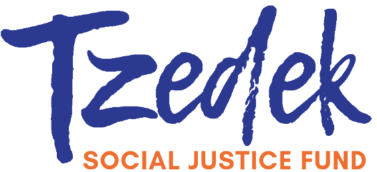Available in Español
Congratulations to the 2024 third-round recipients of the Tzedek Impact Awards! Tzedek Impact Awards honor individuals who have engaged in systems change or community healing work in the Asheville region using the wisdom gained by directly navigating systems of oppression. We are deeply inspired by these leaders and are honored to celebrate their past achievements.
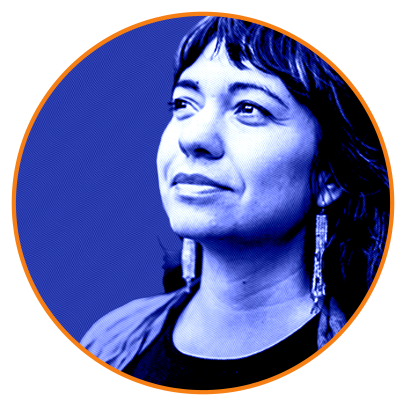
Revolutionary Mother, therapist, and village member Bianca Gragg embraced compassionate accountability to foster transformational relationships with individuals, communities, and the Land. Raised in a multicultural, multiethnic home in the border city of El Paso, Texas, with ancestral roots in Mexico, Spain, and Germany, Bianca wove self-healing into her vision for systems change, believing in the power and connection between personal well-being and social advancement. Her therapeutic work, blending heart-centered somatic and trauma-informed practices, emphasized equity and liberation in the ever-evolving pursuit of genuine self-love. Bianca has collaborated with local groups and leaders, including co-hosting a BIPOC affinity space with Compañeros Inmigrantes de las Montañas en Acción (CIMA) around self-care, helping caregivers and children reclaim their connection to the land, and co-facilitating group discussions on unraveling adult supremacy in family dynamics. These contributions represent Bianca’s lifelong commitment to eradicating oppression, starting with the self and families.
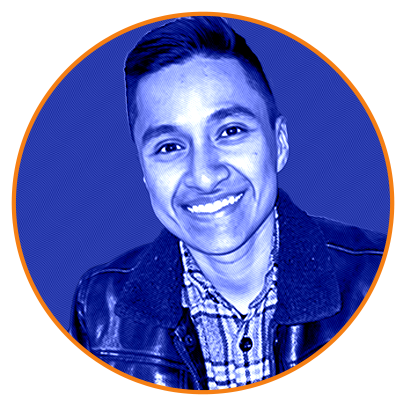
DACA “DREAMer” Carlos Lopez pledged his career to amplifying immigrant voices, rights, and inclusion as part of the Latinx-led Centro Unido Latino Americano (CULA) team. Since joining CULA in 2021 as a volunteer, Carlos advanced to a senior leadership role, currently serving as Youth Engagement Coordinator. In this role, Carlos provided comprehensive learning and team-building experiences through VAMOS, a Youth Mentorship Program supporting holistic youth development as they navigate personal, social, and civic challenges. Under his guidance and in collaboration with local school administrators, VAMOS hosted three youth mental health retreats focusing on mental health awareness, social integration, and identity exploration for Latino, BIPOC, and LGBTQ youth. Carlos’s efforts embodied CULA’s mission by creating safe spaces and dismantling discriminatory systems through cross-cultural partnerships and expanding access to inclusive educational resources.
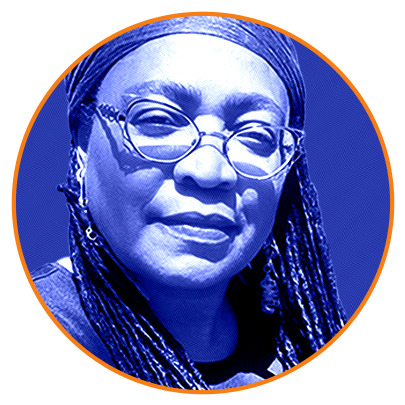
Cleaster Cotton [Klee-Esta, like fiesta] is an internationally renowned Indigenous, Black American artist, educator, ALNUGĒ Codes inventor, TED Talk speaker, cultural conservationist, and human rights advocate whose life-long equity work has sought to address the impacts of racism from local to global levels. Fusing art and justice, Cleaster pioneered relationship-driven education, service, and development in Asheville, NC, including founding the Youth Artists Empowered program and co-founding WNC EarthMates. Her long list of collaborations extended to initiatives in food justice, environmental sustainability, and public art, notably with the City of Asheville, Asheville Parks & Recreation, Arts AVL, Bountiful Cities, and Southside Community Farm. In recognition of her enduring impact, Cleaster received the 2024 Community Service Award from the Dr. Martin Luther King, Jr. Association of Asheville and Buncombe County, a testament to her commitment to cultivating healing, inclusivity, and opportunity for impacted communities.
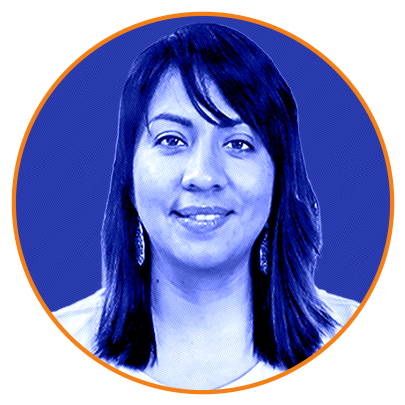
Female immigrant Dulce Mirian forged a decade-long path in grassroots advocacy, cultural organizing, and cooperative development. Known for her commitment to building solidarity economies and advancing immigrant rights, Dulce has empowered hundreds to successfully navigate oppressive healthcare, legal, and educational systems. Through the Erwin District School’s “Our Schools” campaign, she was pivotal in challenging perceptions of students of color and advocating for equitable treatment. As co-founder of the Cultural Raíces group, Dulce worked to preserve immigrant youth heritage, showcase cultural contributions, and foster inclusivity. She also helped establish several housing, real estate, and worker cooperatives, including Las Casitas, which she currently calls home. These initiatives reflect her unyielding dedication to intersectional solutions that dismantle oppressive systems and uplift immigrant communities.
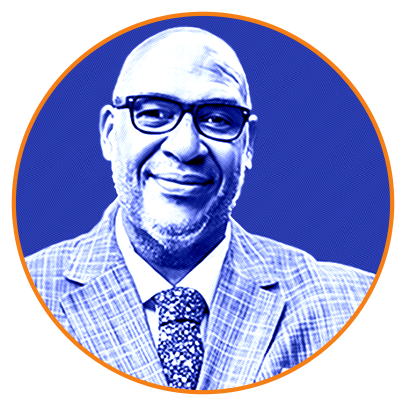
Dr. Eric “Big E” Howard, MSW, Ed.D, invested a 20+ year career laying the groundwork for a more equitable, inclusive community. His journey has been propelled by an unwavering charge to advance human rights and social justice through professional leadership and community engagement. Before assuming the Head of School position at Odyssey Community School, Dr. Howard served as the school social worker at Randolph Learning Center, Director of Student Services for Asheville City Schools, and Coordinator of Buncombe County’s first Veterans Treatment Court. He also joined the OpenDoors Asheville and LEAF Global Arts boards, where his work was instrumental in addressing bias and promoting racial equity. Through local partnerships, Dr. Howard has tackled systemic challenges of food insecurity, criminal justice reform, and eviction prevention. His collaborations have expanded resources and opportunities for Black, Brown, and LGBTQIA communities, bearing witness to his passion and transformative collective impact.

Nonbinary Lesbian, farmer, and bipolar bruja Fél Marquez has been a movement organizer dedicated to strengthening connection and resilience within Queer, Trans, and BIPOC communities across Western North Carolina. As Director of Development for Asheville’s Racial Justice Coalition, Fél secured resources for the local Reparations movement and co-produced the award-winning radio series, “Open Air: Don’t Get Too Comfortable with RJC,” in collaboration with Asheville FM. While serving as Food Safety Manager at Dig In! Yancey Community Garden, they provided free, culturally relevant food boxes to over 60 Latinx families. Fél has volunteered with QTBIPOC-owned entities such as the Asheville Tool Library, Soul Thrive Apothecary, and Soulful Simone Farm. They serve on the board and social justice committee of the Organic Growers School and support capacity-building efforts at Asheville Buncombe Community Land Trust and Eagle Market Streets Development Corp. A multi-ethnic, multicultural advocate, Fél nurtures brave spaces that center decolonial beliefs in pursuing liberation rooted in abundance.
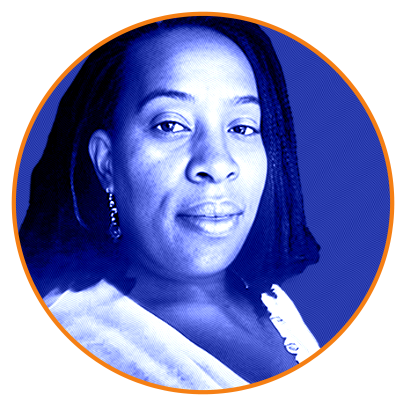
Community builder and equity advocate Jamilah Dixon ignited pathways to positive change in the WNC region. Drawing on her firsthand experiences of discrimination, Jamilah has worked to reveal and remove roadblocks to progress. Her strategy? Share truth to fuel change. Through monthly, unscripted conversations at 12 Baskets Cafe, Jamilah brought citizens together to increase awareness of local government actions and their community impact. As a Community Reparations Commission’s Community Engagement subsection member, she amplified voices and bolstered participation within the racial justice movement. Her volunteer efforts include helping launch the new nonprofit, Black Men Mondays, and supporting OURAvl, a coalition focused on eliminating racial injustice. Jamilah currently co-leads a project to develop an African immersion experience in Ghana, a rite of passage journey to explore African American ancestral connections and self-discovery. Her work speaks to the power of community connection in catalyzing social change.
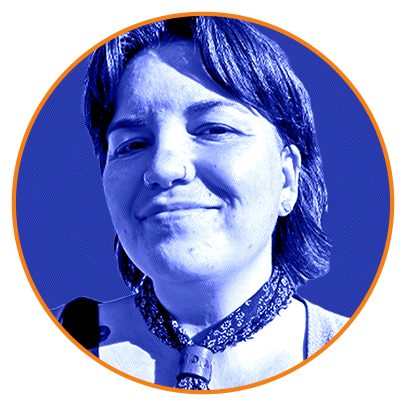
Nonbinary ally and accomplice Oakley Brewer turned soil into a solid foundation for change in creating a food system grounded in justice, compassion, and community. As manager of the Root Cause Farm, Oakley led the cultivation of an acre of produce for donation while also holding conversations about the forces driving hunger. Digging deep into white supremacist underpinnings of food injustice, Oakley routinely advocated for greater diversity, meaningful representation, culturally relevant foods, and equitable access. Through partnerships with Southside Kitchen, they ensured fresh produce reached local free fridges and highlighted Black food leaders’ voices in The Fairview Town Crier. In their role as Executive Director of the North Asheville Tailgate Market, Oakley eroded equity barriers by implementing sliding scale fees and prioritizing diverse vendors. Beyond the farm and market, they have poured their time and resources into mutual aid, herbal medicine, and community care, ensuring their advocacy is as tangible as it is transformative.

Shenekia McDaniels has been an unstoppable force for equity and empathy in Asheville City Schools. As a single mother, foster parent, and elementary educator, she has given her whole heart to empowering inclusivity and kindness as a teacher and SEED (Seeking Educational Equity and Diversity) facilitator. Shenekia’s lifework has taken her from birth assistant to homeless shelter liaison to Montessori instructor, each experience deepening her devotion to uplifting underserved families. At ACS, Shenekia crafted inclusive environments that honor each child’s unique identity and cultural heritage so all feel seen, celebrated, and valued. Her advocacy extends beyond the classroom: Shenekia participated in a photovoice project capturing the realities of low-income parents in Asheville and worked with the ACS District Equity Team in adopting anti-racist policies, fostering community dialogues, and promoting an asset-based approach to teaching to help build a school culture of belonging and mutual respect. Her mission? Live love out loud!

Social justice powerhouse Teresa Mosely championed nonviolent resistance to challenge systemic oppression and drive community change. A registered nurse and co-director of the Keith Mosely Foundation, Teresa combined compassion with activism to address the persistent issues of gun violence and school bullying affecting at-risk youth and families. Through her nonprofit, she creates spaces for honest conversations on privilege, power, and implicit bias, working with educators, policymakers, and community leaders to dismantle systemic injustice. Her fundraising expertise helped secure critical resources for initiatives supporting historically marginalized communities, always advocating for equitable funding practices to better tackle economic disparities. Teresa’s coalition-building has spanned grassroots groups, faith communities, and labor unions, leveraging collective power to advance affordable housing, living wage policies, and voting rights. From coordinating solidarity protests to organizing community workshops, Teresa has transformed passion into action and experience into expression, working tirelessly to build a safe, inclusive society where dignity, justice, and respect stand as foundational rights for all.
Sincere thanks to these Impact Award recipients and countless others who have poured their hearts into the myriad of brilliant, beautiful efforts to make Asheville a more equitable, inclusive place where all people and communities can thrive.
